These days, thanks to the magic of modern technology, reviving people when they're officially pronounced "dead" isn't impossible. Now I'm not saying that you and your friends should go and try to recreate the plot from Flatliners or anything, but it is pretty awesome to know that once your heart stops beating there are tools and methods to try and get it pumping again.
And because we'll all end up dead sooner or later, our fascination with the subject and what happens "afterward" is understandably a big question on everyone's minds. Whenever someone passes away and is brought back, people inevitably have loads of queries.
What was it like?
Did you a see a light?
Did you see your grandparents?
Did you smell anything? Does the afterlife smell bad? It must smell bad.
I'd imagine that 29-year-old Jamie Poole, who suffers from Hypertrophic Cardiomyopathy, gets asked those questions a lot.
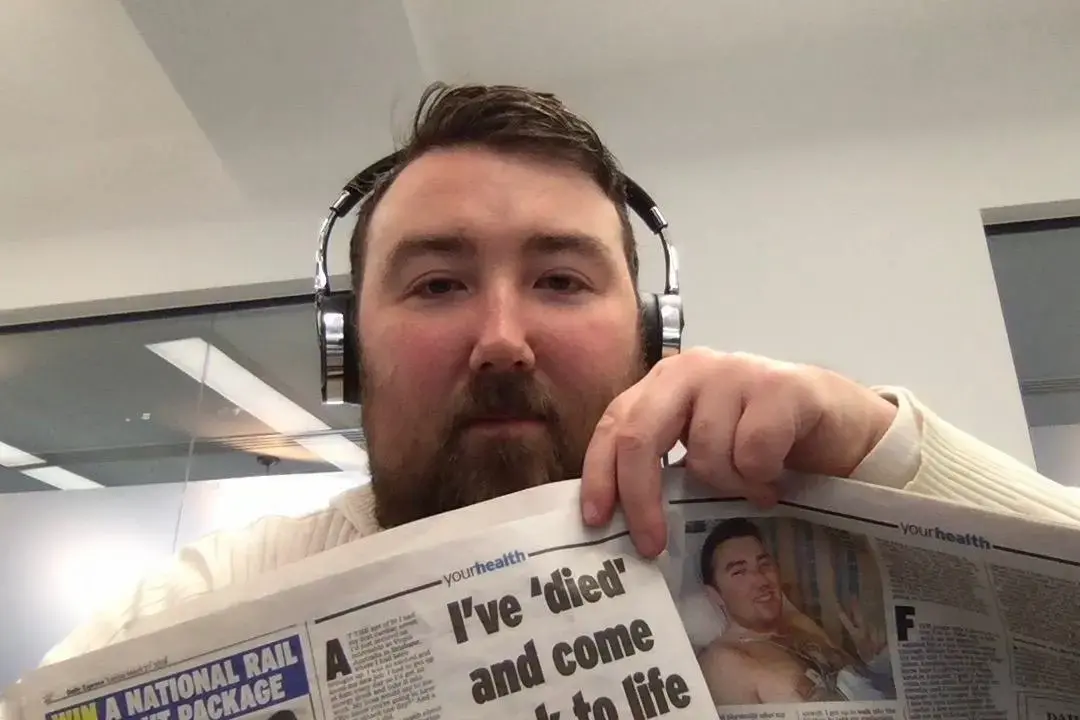
Jamie's condition means that he's especially susceptible to having heart attacks — he suffered his first one at only 20-years-old. To date, he's had nine cases of cardiac arrest and has had to be revived each time.
Thanks to a device known as an ICD (implantable cardioverter defibrillator), Poole's able to shock his heart back into action when he goes into cardiac arrest.
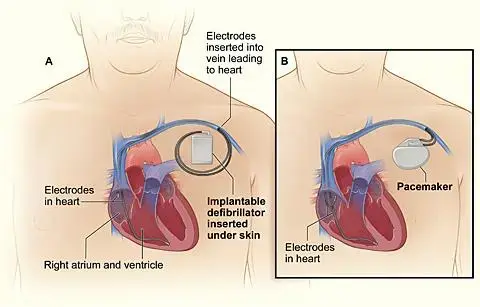
Although people in his personal life are almost always asking him about his illness, he was gracious enough to hop on a Reddit AMA and let users ask him questions about how the disease has affected him.
Posts from the iama
community on Reddit
Poole's also written extensively about his condition in a series blogs here, here, and here, but the great thing about the AMA is that some of the more "shallow" human questions about living with an illness like this could really be addressed.
Like the fact that there's a real chance every last meal he could have could potentially be his last, and Poole doesn't want to waste that experience.

He also goes in-depth about the "feeling of dying," something that he's become quite accustomed to by now. And it sounds just awful.

Poole says that he's quite lucid through his "deaths," as the ICD has been successful in reviving him when they occur. The first instance, however, he did suffer minor brain damage because, as he mentions, he went without oxygen for an extended period of time.
As for the "out of body experiences," or there being life after death, Poole says that he's had some sensations, thoughts, and "dreams," but chalks them up to brain chemicals getting all out of whack, because, you know, he was dying and all. It's kind of a lot for our minds to handle.
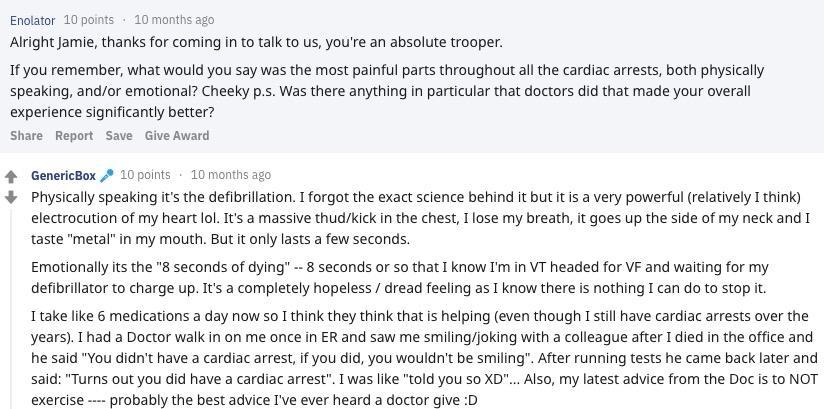
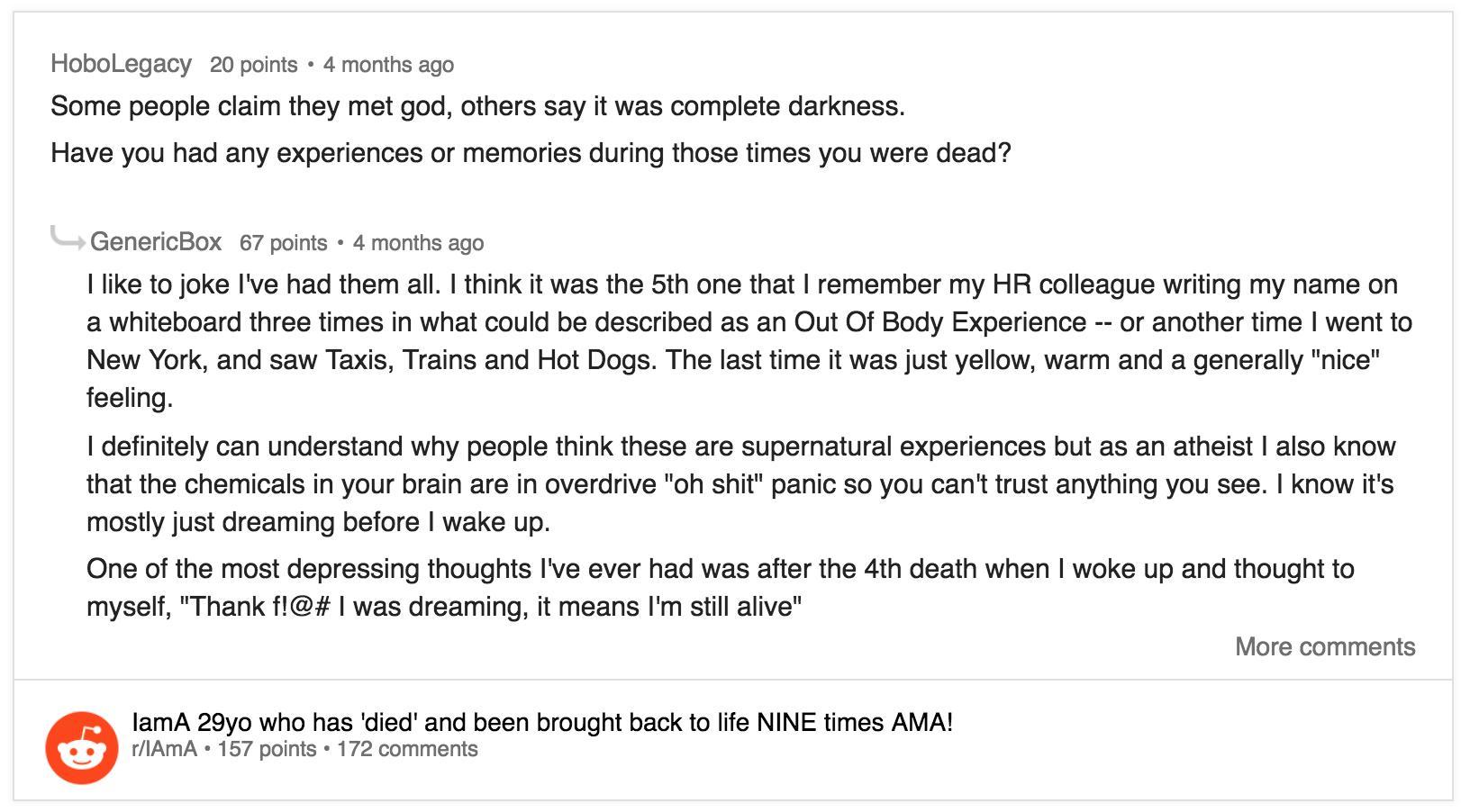
Some of the questions were more serious than others.

What's amazing is that Poole has managed to keep a good sense of humor about living with such a scary illness.

He does ultimately fear death, especially because he knows that once those irregular heart rhythms begin, that a heart attack is imminent — and usually comes within 8 seconds. He also knows his ICD won't work everywhere and it also won't save him every single time. Thankfully, so far, it has.
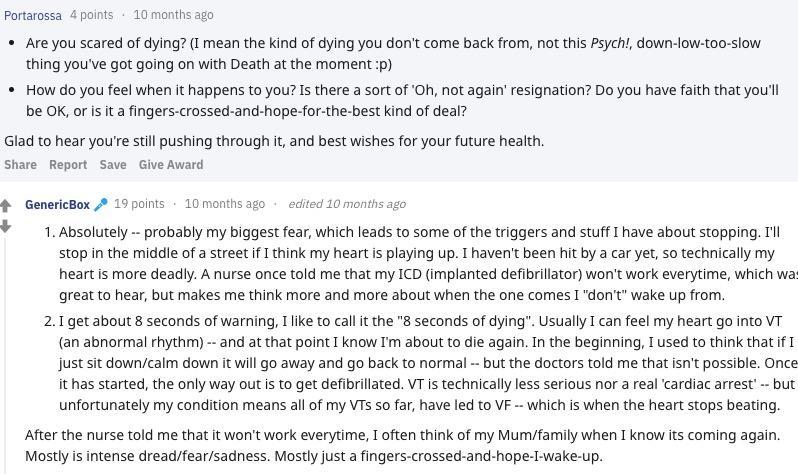
He's forbidden from strenuous exercise, and when you see his scary account of running on a treadmill, it's easy to understand why.
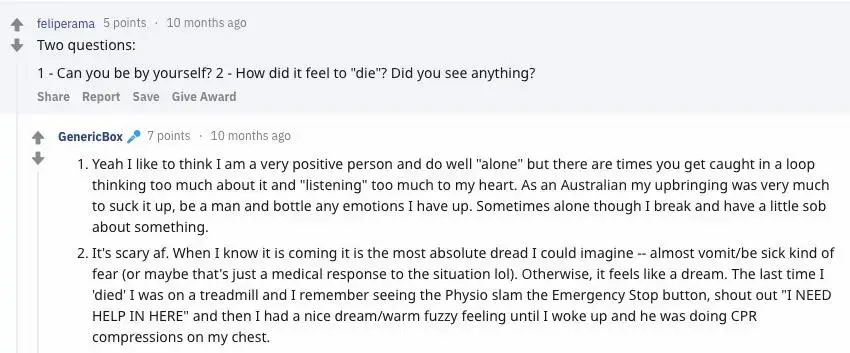
Due to his unique situation, being shortlisted for a real heart transplant is tough business, and probably won't happen anytime soon for Poole.

He still looks on the bright side, however, like the feeling of being "super pumped" after coming back to life. He attributes it to the body doing an adrenaline dump in order to get everything back in working order.
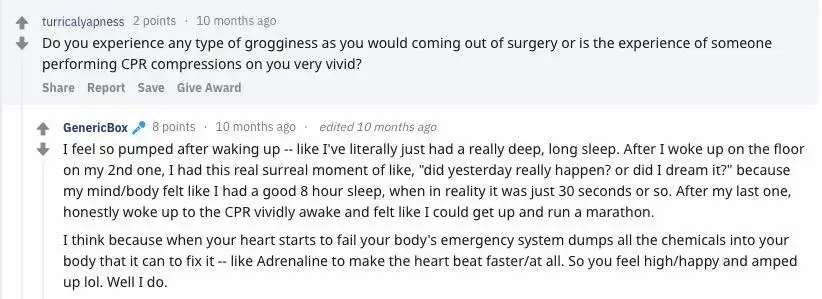
But there are certain limitations imposed on him by doctors due to his condition...some of them he listens to. Others, he doesn't.
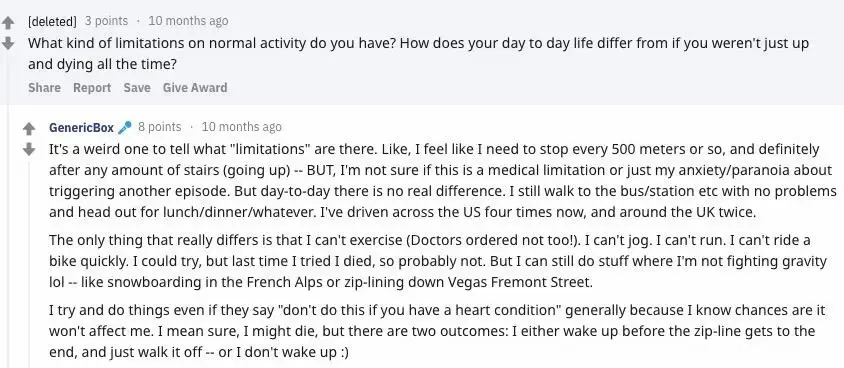
Thankfully though, someone asked the question I had on my mind, and Poole graciously answered it.

He's right, the new one had no excuses. Of all the movies to remake...
This article was originally published last year.





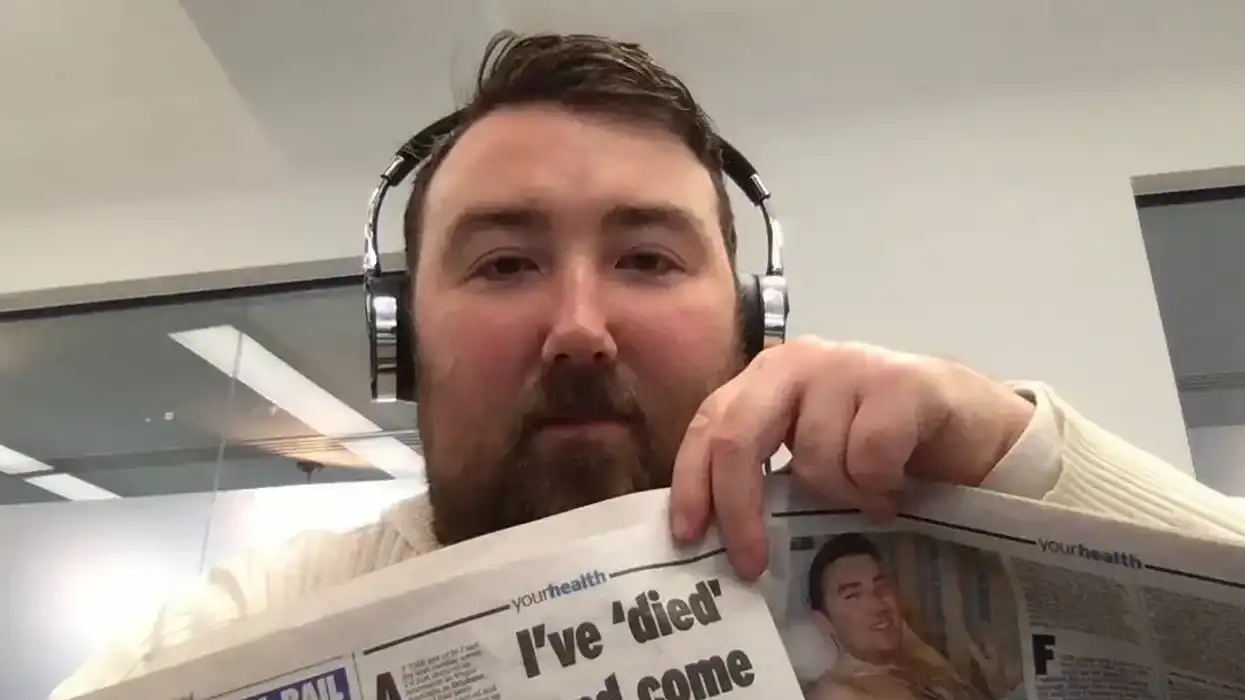




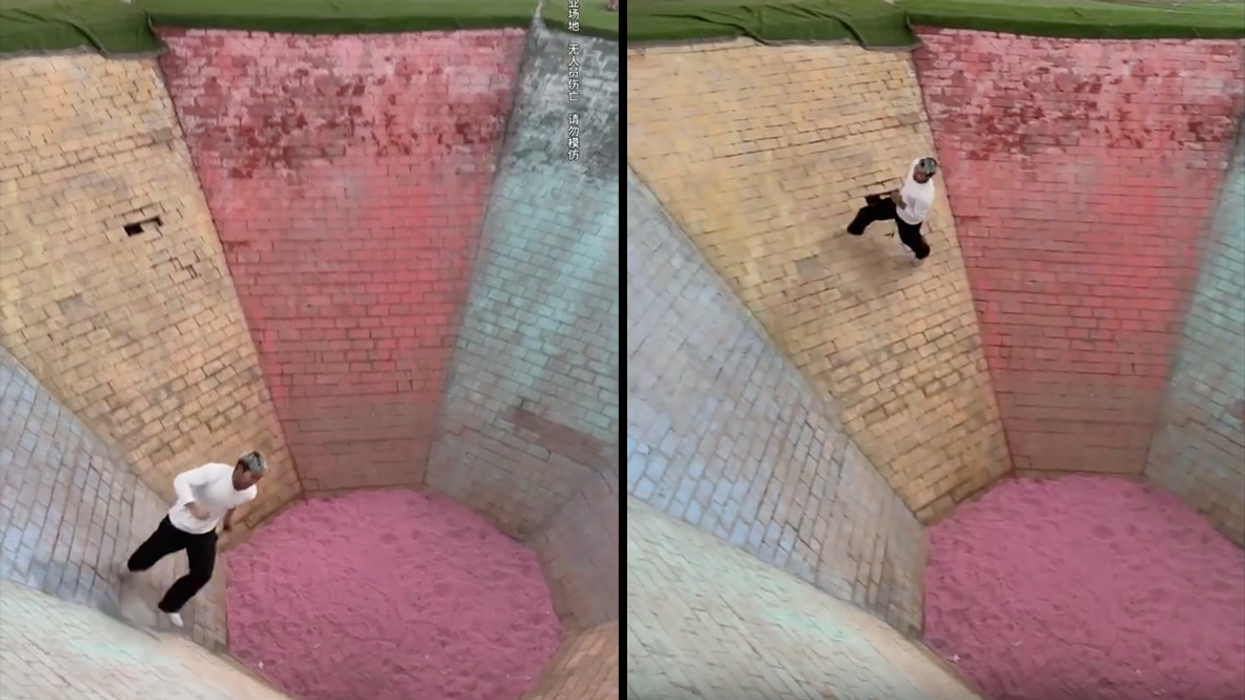
 This represents the key to the perfect flow statePhoto by
This represents the key to the perfect flow statePhoto by 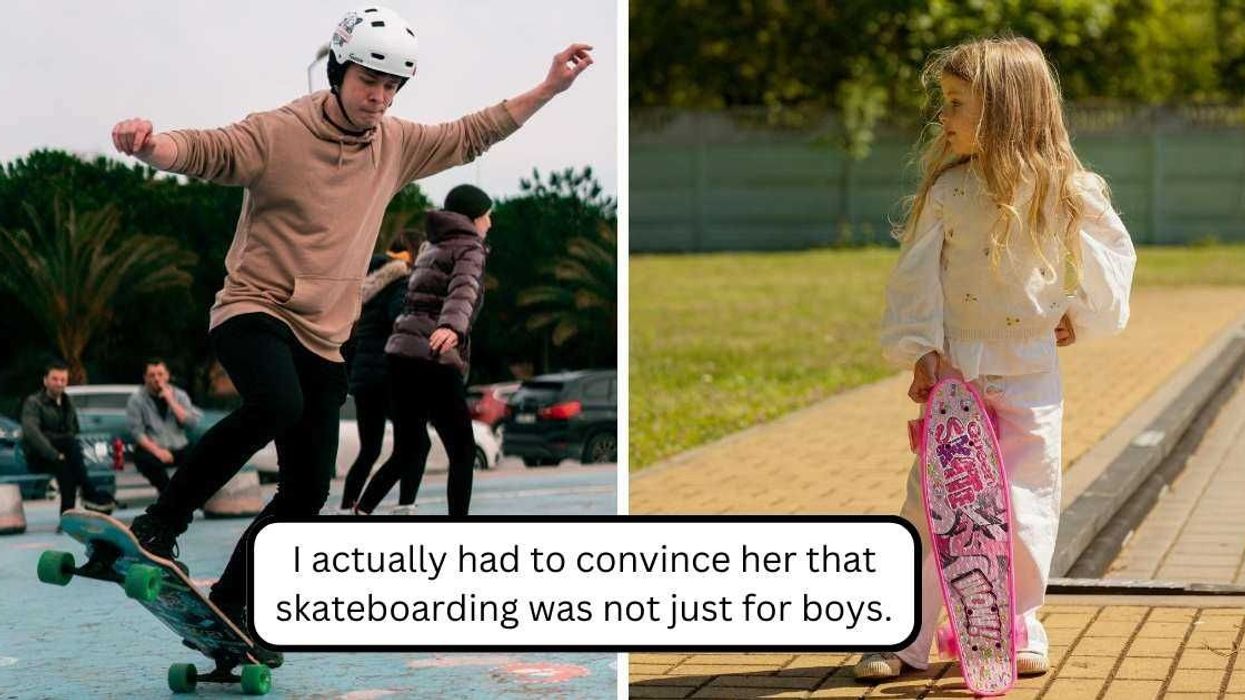
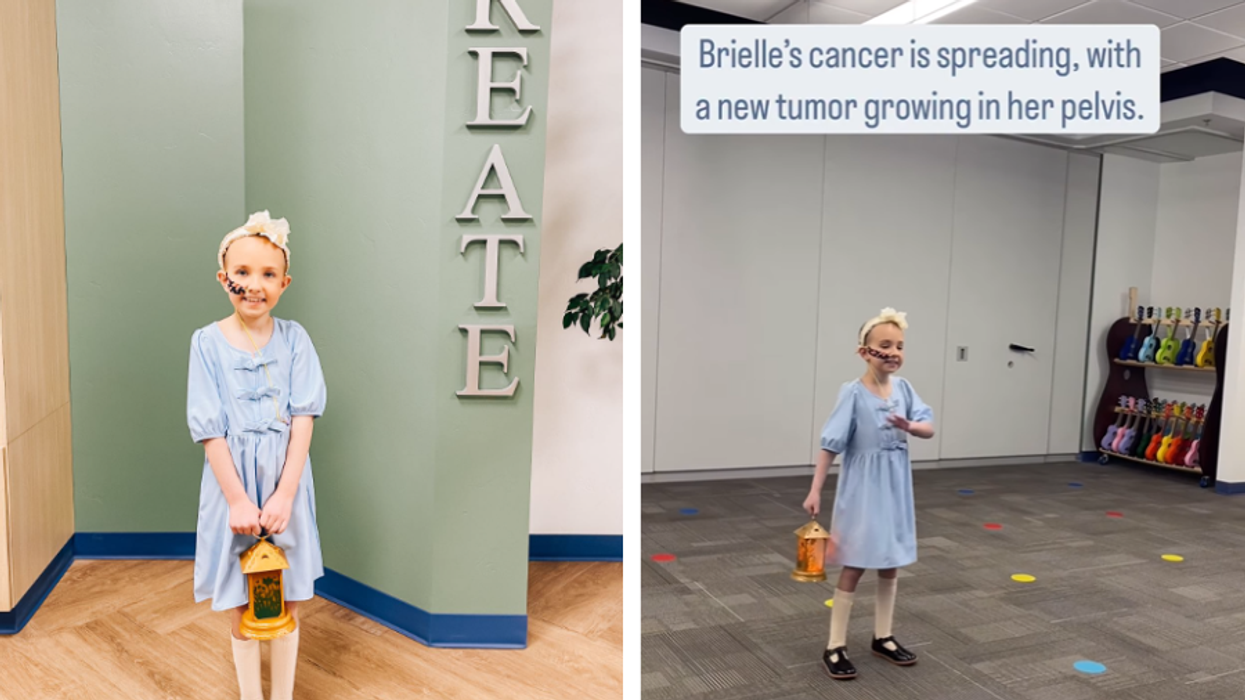
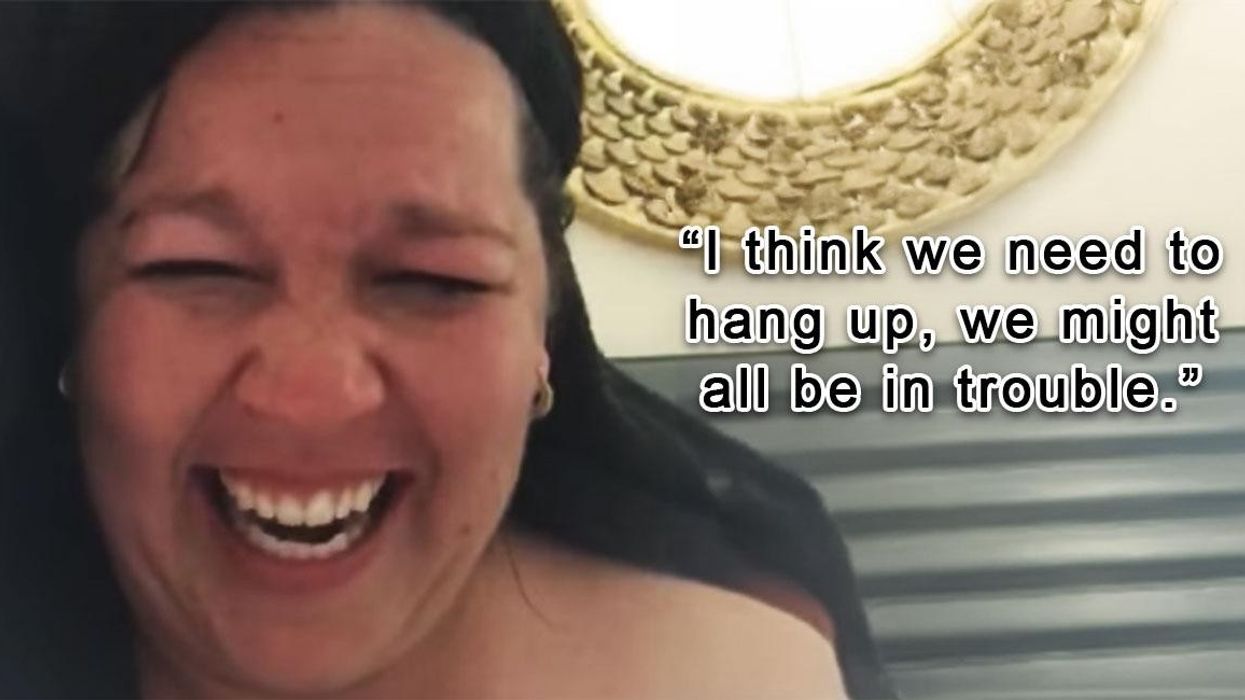



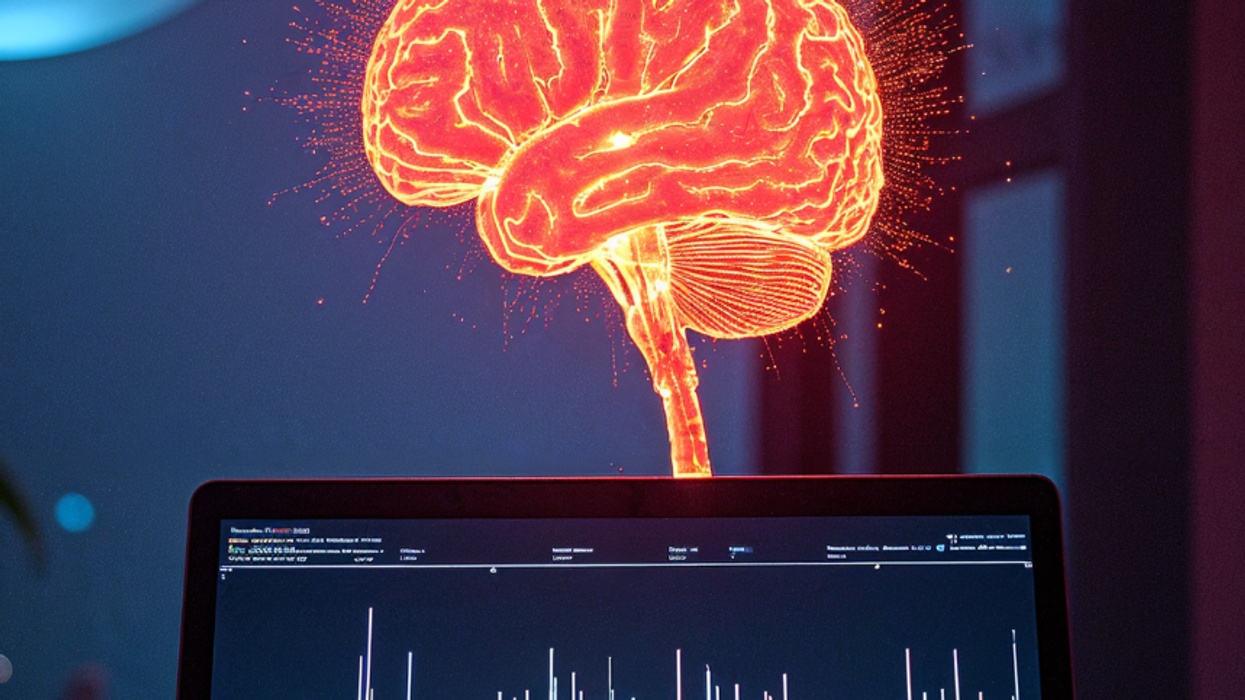
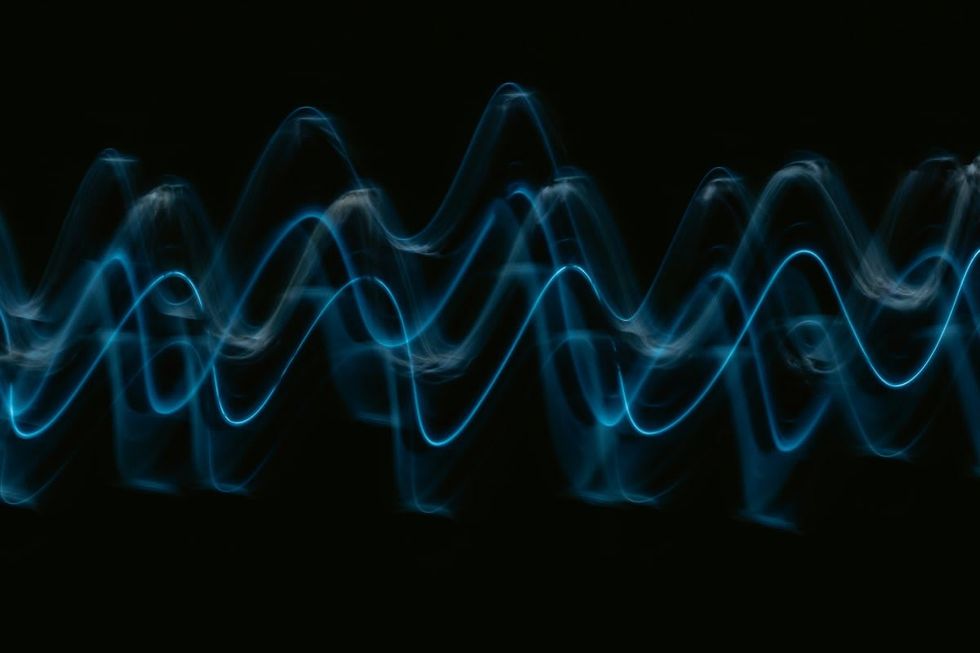 Representative Image Source: Unsplash | Pawel Czerwinski
Representative Image Source: Unsplash | Pawel Czerwinski 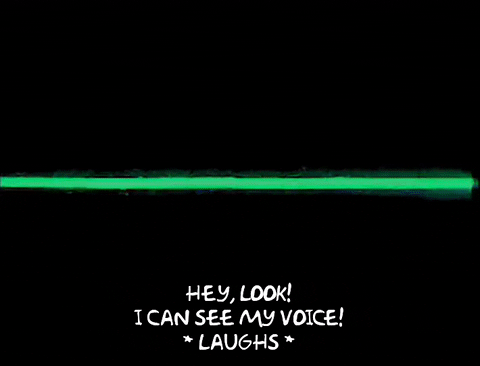
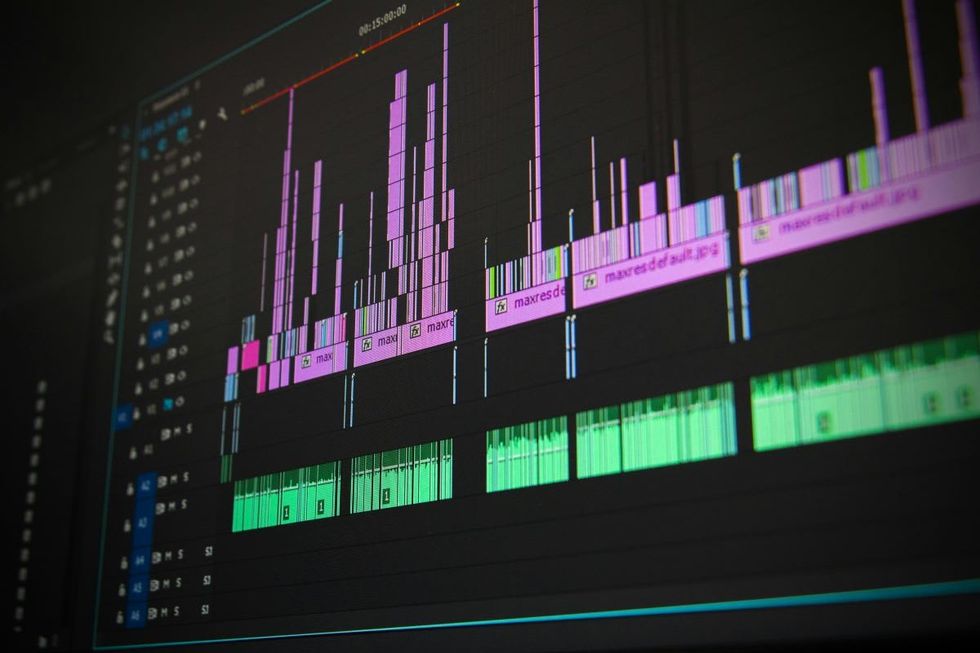 Representative Image Source: Pexels | Pixabay
Representative Image Source: Pexels | Pixabay 







